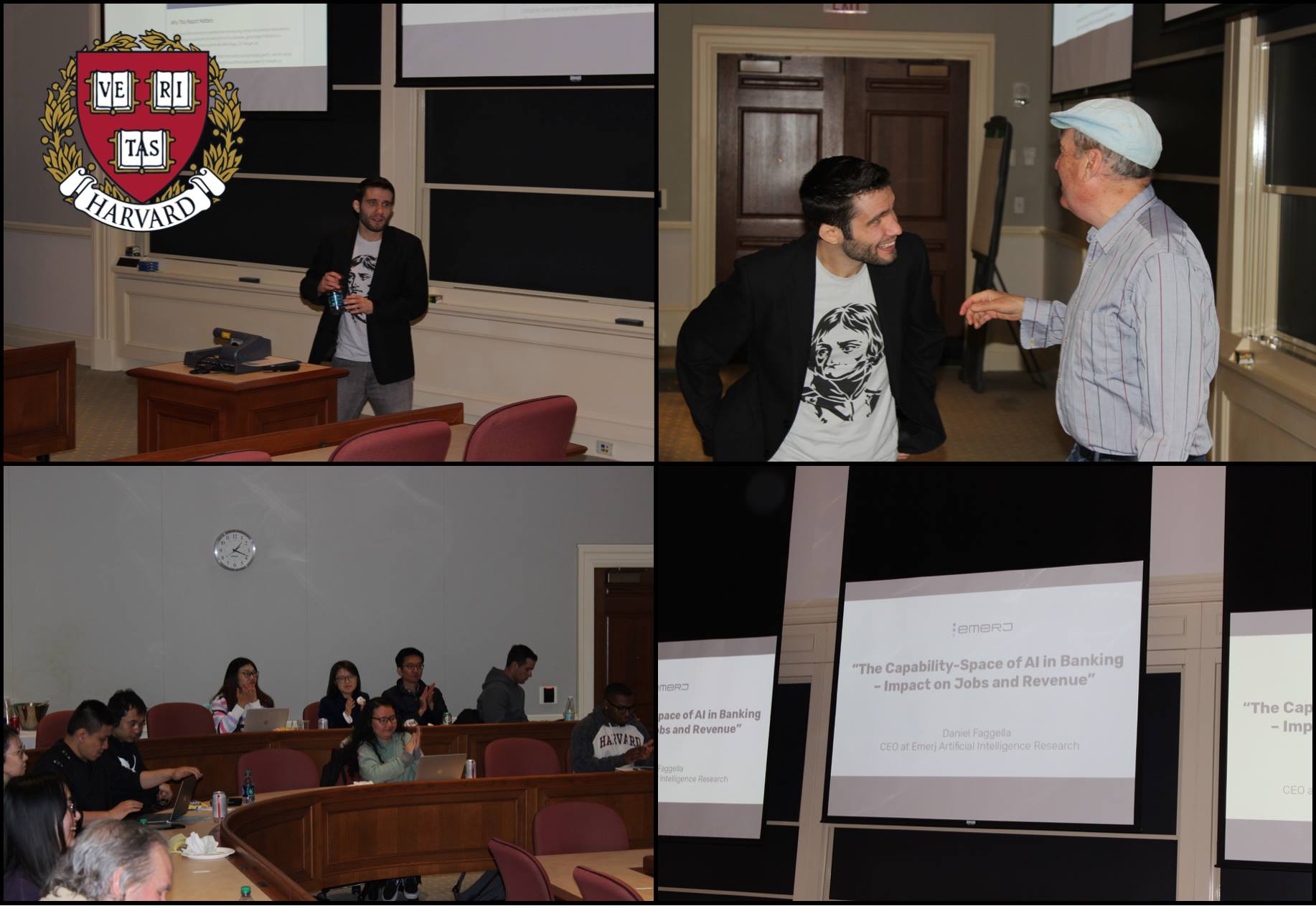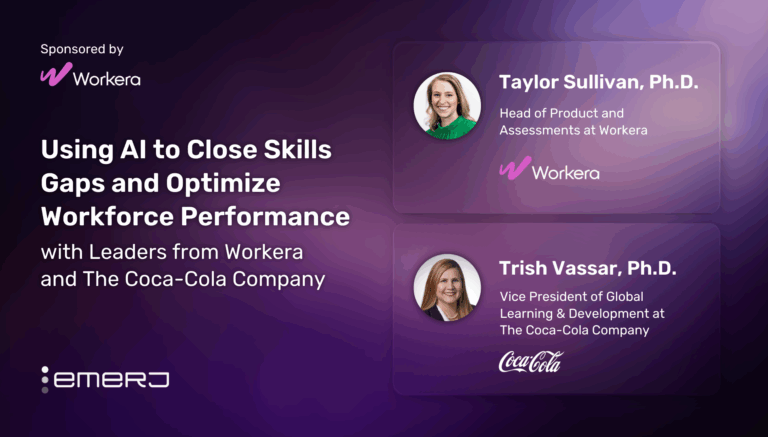Event Host: Harvard Univesity
Date: April 12, 2019
Team Member: Daniel Faggella, Emerj Founder and CEO
Presentation Title: The Capability-Space of AI in Banking – Impact on Jobs and Revenue
What Happened

Richard Freedman, a professor of economics at Harvard University, has been an active reader of our newsletter for a number of years, and he was kind enough to invite us to speak as part of an economics speaker series at Harvard.
I let him know about the research we’ve been working on in banking, particularly our AI in Banking Vendor Scorecard and Capability Map.
Freedman was very excited about that and asked us to come and present about it to his class. There were a few faculty members in the audience and a number of undergrad students, grad students, and some postdocs as well. A few people from industry also showed up: a data scientist from Staples and a researcher from IBM among others.
The presentation was about an hour long with a 30-minute Q and A section afterwards. I answered student questions about the implications of AI in finance.
What We Learned
- Students ask a lot of the same questions as business people, such as “What is the return on investment of a data scientist in banking?” or “How long does it take to get an AI project to work?” These are inherently impossible questions to answer, and they’re among the biggest reasons why AI is challenging to adopt in banking. We have a longer article about the challenges of adopting AI called Enterprise Adoption of Artificial Intelligence.
- Students and faculty were at least as interested in the impact of AI on jobs as they were on the impact of AI on the bottom line. There is an overt concern that AI will eliminate more jobs than it will contribute. In the coming two-three years we consider mass layoffs in finance somewhat unlikely. Within five to ten years, however, it seems rather likely that much of the back-office processing work (often outsourced to somewhere like India), and much of the more monotonous processing tasks (potentially in customer service, in lending, and other areas) will need to be downsized significantly. We explore these topics in great depth in the full report.
- Our perspectives on large AI consulting firms were validated by some of the folks in the audience, including Profesor Freedman. Freedman worked with big consulting firms, one of the likes of Accenture, McKinsey, PwC, and Deloitte (although we are not revealing which one). We’re of the belief that large organizations that might work with these consulting firms are far too naive. They presume that these firms have serious AI talent and that they can handle their needs through consultancies as opposed to through their own in-house data science teams. Professor Freedman let us know that in his experience working with these larger consulting firms on AI-related projects, our suppositions seem to be true.
Header Image Credit: Wes Moss




















